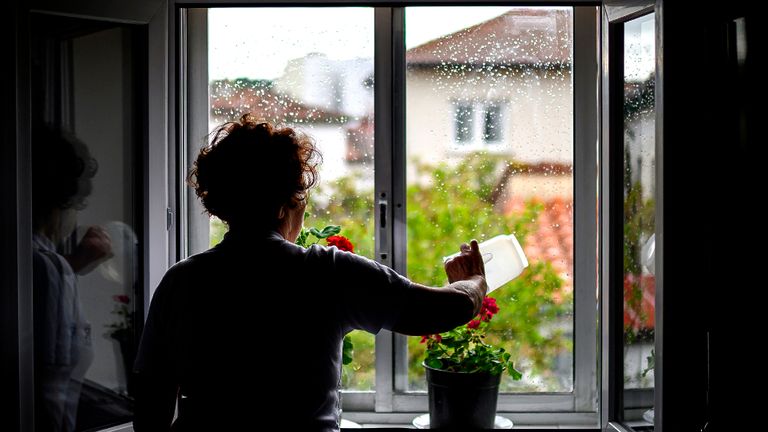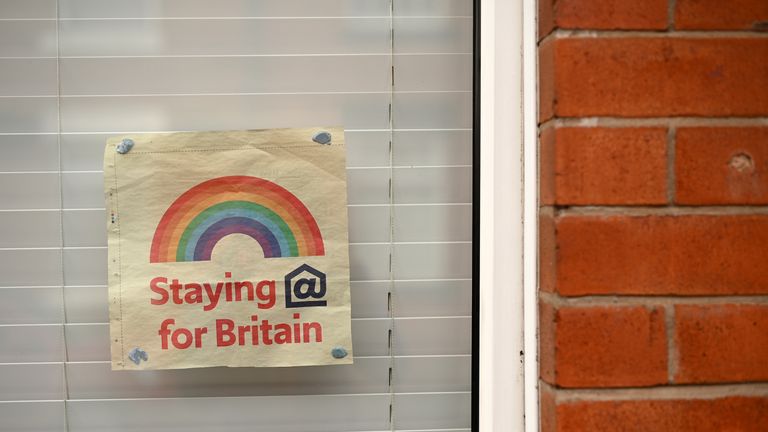The UK is changing its rules on how long anyone with suspected coronavirus has to self-isolate for.
But why has the decision been made to increase the time from seven to 10 days and what effects might it have?
What were the old rules?
Until 30 July, if someone had symptoms or a positive COVID-19 test result they had to self-isolate for seven days.
And anyone who came into close contact with them would then also have to stay at home for 14 days.
Advertisement
So what are the new rules?
Now anyone with symptoms or a positive test must self-isolate for ten days.
More from Covid-19
The two-week period for those they've come into close contact with remains the same.

Why the change?
The UK's four top scientists – the chief medical officers of England, Scotland, Wales and Northern Ireland – have said evidence has "strengthened" to suggest that people might be infectious for longer than previously thought.
They still think that someone with the coronavirus is most likely to be able to pass it on just before and for a few days after they start showing symptoms – which are a new, continuous cough, fever or loss of taste or smell.
But they also said they now believe someone with the virus has "a low but real possibility of infectiousness between seven and nine days after illness onset".

Are there other reasons?
The scientists hinted the advice is also changing as the country gears up for winter, when a recent government-commissioned report warned there may be a second wave bigger than the first that kills 120,000 people.
They added that with a much higher number of tests available and given the gradual lockdown easing, "it is now the correct balance of risk to extend the self-isolation period from 7 to 10 days".
How does that differ from official World Health Organisation (WHO) advice?
The WHO has been telling countries since 27 May that people with symptoms should isolate for 10 days – plus at least three days once they stop displaying symptoms.
For those with no symptoms, it still says they should isolate for 10 days after receiving their positive test.
The WHO said at the time that evidence showed "it appears safe" for people to stop self-isolating after those periods because of the "rarity" of virus still left iRead More – Source
[contf]
[contfnew]

sky news
[contfnewc]
[contfnewc]





